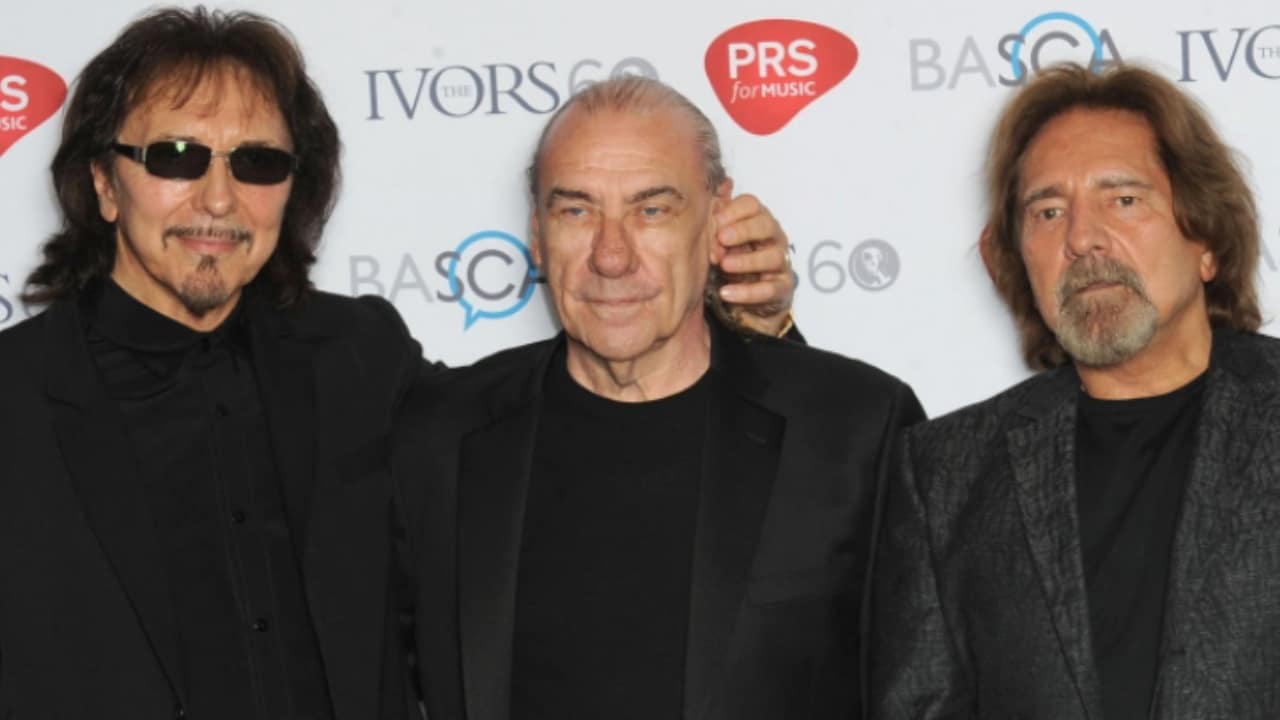 The departure of original drummer Bill Ward from Black Sabbath’s reunion lineup cast a dark shadow over the legendary band’s final chapter, leaving fans disappointed and sparking controversy. Ward, whose jazzy, off-kilter drumming was integral to the group’s pioneering sound, was initially set to join Ozzy Osbourne, Tony Iommi, and Geezer Butler for both the band’s final album *13* (2013) and subsequent farewell tour. However, due to contractual disputes and personal grievances, Ward walked away, leaving fans questioning the authenticity of the reunion and mourning the absence of a complete farewell.
The departure of original drummer Bill Ward from Black Sabbath’s reunion lineup cast a dark shadow over the legendary band’s final chapter, leaving fans disappointed and sparking controversy. Ward, whose jazzy, off-kilter drumming was integral to the group’s pioneering sound, was initially set to join Ozzy Osbourne, Tony Iommi, and Geezer Butler for both the band’s final album *13* (2013) and subsequent farewell tour. However, due to contractual disputes and personal grievances, Ward walked away, leaving fans questioning the authenticity of the reunion and mourning the absence of a complete farewell.
The fallout began in early 2012, when Ward publicly announced that he would not participate unless offered a “signable contract.” Ward’s statement implied that the financial and legal terms were disrespectful, igniting widespread debate among fans. Some sympathized with his decision, while others expressed frustration that such an important reunion was derailed over business matters. For many, the idea of Black Sabbath without Ward felt incomplete, particularly since the reunion was marketed as a return of the original lineup.
Ward’s absence was keenly felt on *13*, with drummer Brad Wilk of Rage Against the Machine stepping in. While Wilk performed capably, many listeners found his style too rigid compared to Ward’s unpredictable and dynamic playing. Ward’s drumming was a defining element of Sabbath’s sound, bringing an improvisational touch that helped shape songs like “Iron Man” and “War Pigs.” Fans lamented that *13* lacked this spark, further fueling the sentiment that the band’s final album was a diminished representation of their former brilliance.
The situation became even more contentious when Ozzy Osbourne made public remarks suggesting that Ward was physically unfit to perform. Osbourne’s comments caused an uproar, with Ward defending his capabilities and clarifying that his decision to step away was due to unfair contractual terms, not health concerns. This back-and-forth exposed tensions within the band and fractured the sense of unity fans had hoped for.
The rift was a bitter blow to longtime followers, many of whom had waited decades for a proper reunion. For them, Ward’s exclusion from both *13* and the farewell tour meant that the band’s swan song would forever feel incomplete. Social media was flooded with messages of frustration, with some fans even boycotting the final tour out of loyalty to Ward. “It’s not Black Sabbath without Bill,” became a common refrain, underscoring the drummer’s irreplaceable role in the group’s legacy.
The farewell tour, which culminated in a final show in Birmingham, England in 2017, was an emotional moment for many fans—but also a bittersweet one. While Osbourne, Iommi, and Butler delivered powerful performances, Ward’s absence lingered like a haunting void. For a band that built its reputation on chemistry and camaraderie, the lack of reconciliation with Ward felt like an unresolved chapter in their storied history.
In the end, Black Sabbath’s farewell was clouded by what many saw as unnecessary conflict. Although their influence on metal remains undisputed, Ward’s departure tarnished the band’s legacy in the eyes of many fans. What could have been a triumphant final act instead became a reminder of the complexities that often accompany legendary careers, leaving fans with a lingering sense of what might have been.
